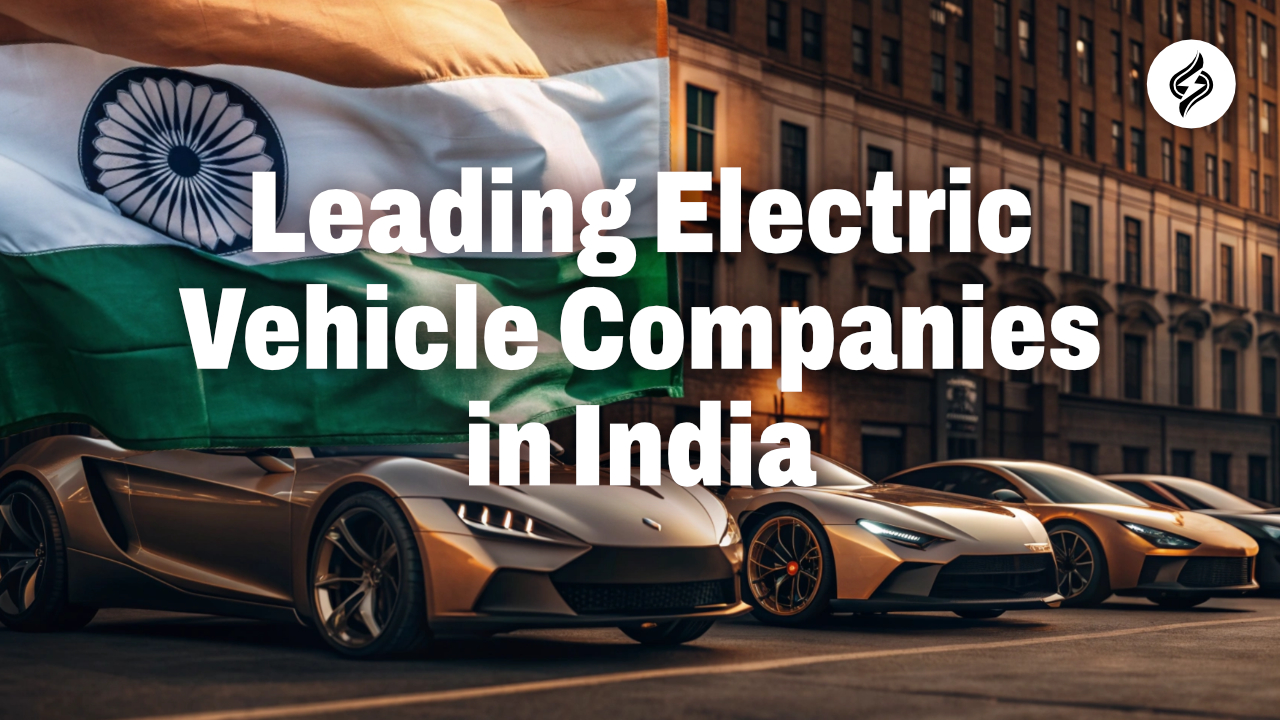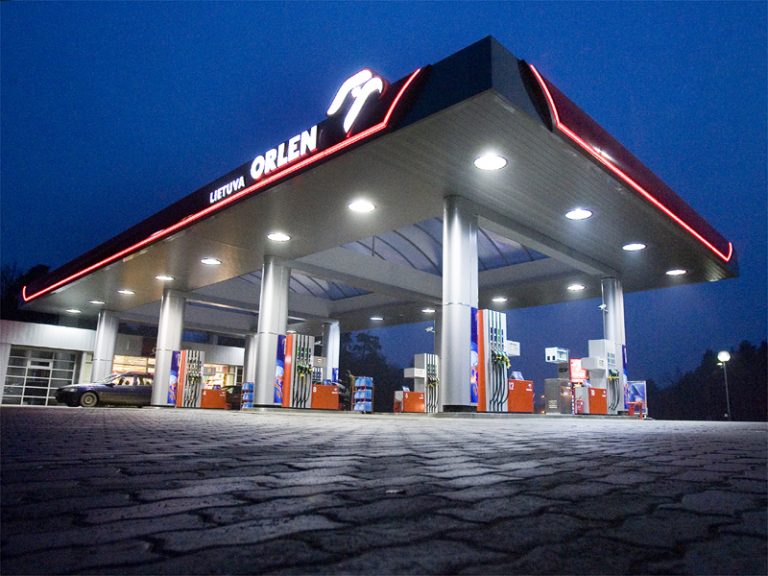The electric vehicle (EV) industry is rapidly expanding in India, with many companies producing a variety of EVs, including electric buses, bikes, cars, scooters, three-wheelers, and trucks. Traditional diesel or petrol-powered vehicles are increasingly being replaced by environmentally friendly, high-performance EVs equipped with advanced connectivity and safety features. Electric mobility is revolutionizing the future of transportation with sustainable, scalable, and user-centric solutions.
Key Players in India’s EV Market
India’s EV market is dominated by major brands across various segments, including two-wheelers, three-wheelers, passenger vehicles, and commercial EVs. Notable companies include Ampere, Ashok Leyland, Ather Energy, Hero Electric, Hero MotoCorp, Hyundai, Mahindra Electric, MG Motor India, Okinawa Autotech, Ola Electric, Tata Motors, and TVS Motor Company.
Leading EV Car Companies in India
Tata Motors
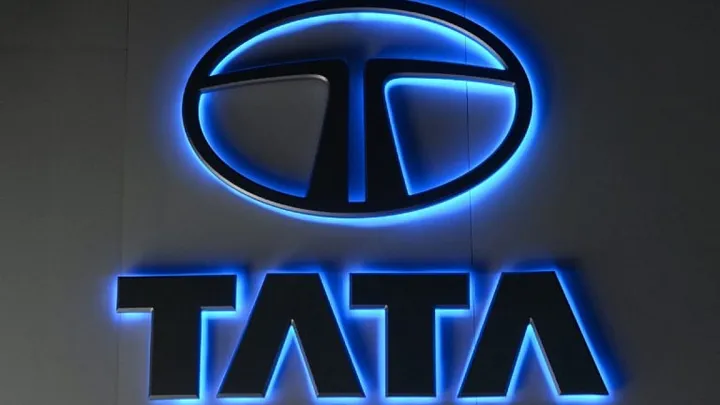
Tata Motors is a leading EV manufacturer in India, achieving significant growth in EV sales in FY22, with a 353% increase compared to FY21. The company has a first-mover advantage, offering the widest range of EVs in the country. The Tata Tigor EV, the company’s first EV for personal buyers, accounted for 95% of total electric car sales in February 2022. Tata’s EVs use Ziptron technology, which ensures long motor life and smooth battery performance. Key models include:
- Tiago.ev: Features a refined front grille, distinctive DRLs, luxurious interiors, and comprehensive safety features.
- Tigor.ev: Equipped with Hyperstyle Wheels, automatic temperature control, and smart features like a digital instrument cluster and reverse camera with dynamic guidelines.
- Nexon EV: India’s best-selling electric car, available in variants like the Jet Edition, Nexon EV PRIME, Nexon EV MAX, and Dark Edition.
Tata Motors is also considering reviving its compact city car Nano in an EV format as part of an ambitious expansion in the electric mobility sector. The Tata Punch EV, built on the GEN 2 (Sigma) platform, offers a range of over 300 km. The upcoming CURVV SUV Coupe EV concept boasts a 400 km range, while the AVINYA EV Concept is Tata’s first model based on the GEN 3 architecture, termed “Born Electric.”
Tata Elxsi
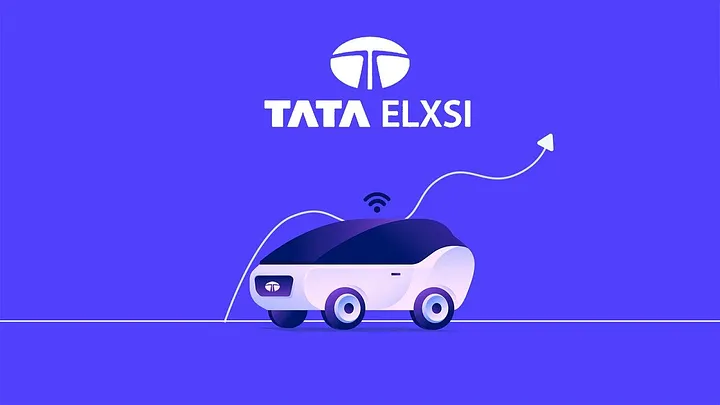
Tata Elxsi provides design and technology services across various industries, including automotive, digital, healthcare, and transportation. Its eMobility HILS framework validates EV systems such as battery management, DC-DC converters, and inverters.
MG Motor India

MG Motor India Private Limited designs, develops, and markets cars under the MG (Morris Garages) marque, a renowned British automotive brand. The MG ZS EV, India’s first pure electric Internet SUV, features a 50.3kWh battery pack and a range of 461 km. The company plans to challenge Tata’s Tiago EV with the introduction of the MG Air EV.
Mahindra Electric Mobility
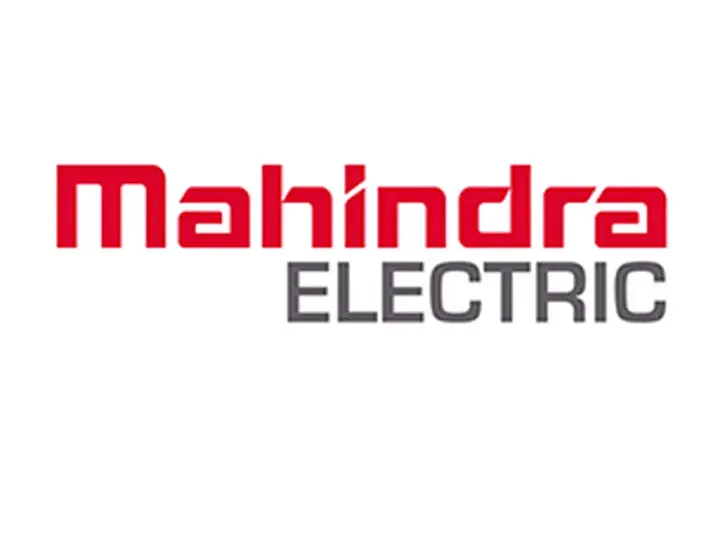
Mahindra Electric Mobility Limited is the EV division of the Mahindra Group. Since the launch of the Mahindra Reva in 2001, the company has made significant contributions to India’s EV market, focusing on battery manufacturing and EV infrastructure. The lineup includes:
- Mahindra eVerito: India’s first electric sedan with the patented REVive feature to alleviate range anxiety.
- Mahindra e2oPlus: A compact, 100% electric vehicle offering maximum efficiency and convenience.
- Mahindra NEMO: The Next-Generation Mobility platform, providing deep insights into vehicle performance.
Hyundai

Hyundai Motor Company, a key player in the electric mobility revolution, introduced India’s first electric SUV, the KONA Electric, in 2019. The Hyundai IONIQ 5, built on the Electric-Global Modular Platform (E-GMP), offers better handling, faster charging, increased driving range, and more interior space.
Other Prominent EV Car Manufacturers
- BYD (BYD E6)
- BMW (BMW i4)
- Audi (Audi e-tron)
- Porsche (Porsche Taycan)
- Mercedes Benz (Mercedes Benz EQC)
Top EV Stocks in India
For those considering investment in EV stocks, here are some top options in India (listed alphabetically):
- Amara Raja Batteries Ltd. (Batteries)
- Ashok Leyland (Automobiles – Trucks/LCVs)
- Exide Industries Ltd. (Batteries)
- Graphite India Ltd. (Electrodes & Welding Equipment)
- Greaves Cotton Ltd. (Diesel Engines)
- Hero MotoCorp Ltd. (Automobile 2- and 3-wheelers)
- Himadri Speciality Chemical Ltd. (Chemicals)
- Hindalco Industries Ltd. (Metal – Non-ferrous)
- Hindustan Copper Ltd. (Metal – Non-ferrous)
- JBM Auto Ltd. (Auto ancillary)
- Mahindra & Mahindra Ltd. (Automobiles – Passenger cars)
- Maruti Suzuki India Ltd. (Automobiles – Passenger cars)
- Tata Chemicals Ltd. (Chemicals)
- Tata Motors Ltd. (Automobiles – Trucks/LCVs)
- Vedanta Ltd. (Metal – Non-ferrous)
Major Players in the Commercial EV Industry
BluSmart Mobility

BluSmart Mobility Pvt. Ltd. is the largest EV ride-hailing service in India, operating over 2,500 electric cars and providing an all-electric shared mobility platform.
Electric One
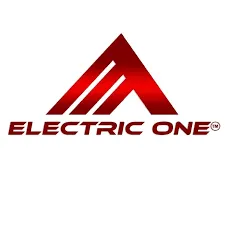
Electric One Mobility Private Limited is India’s fastest-growing multi-branded electric mobility chain, offering top models from trusted brands through its extensive network of over 100 stores.
Lohia Auto

Lohia Auto is a leading manufacturer of e-autos and e-rickshaws, known for its benchmark products in the EV category. The company offers a wide range of two-wheelers, E-Rickshaws, E-Auto L3, E-Rick/L3-Auto, and E-Auto L5 vehicles.
Upcoming Electric Cars
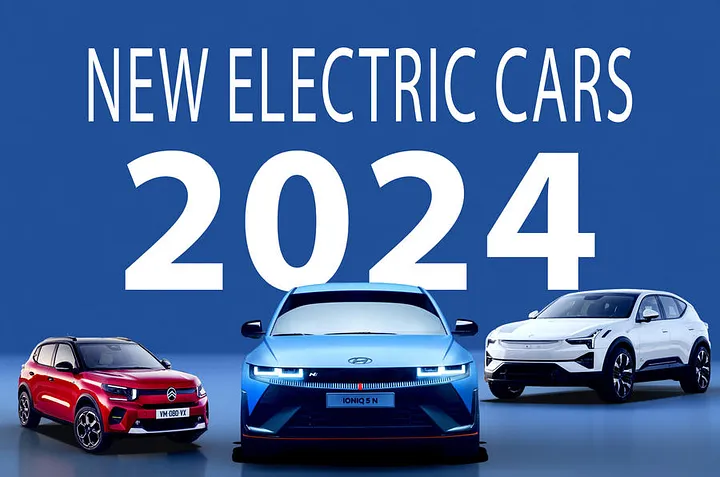
The Indian automotive market is preparing for significant launches in 2023, including:
- Citroën C3 EV
- Mahindra XUV400
- Tata Altroz EV
Auto Expo 2023
Car enthusiasts are eagerly anticipating the 16th edition of the Auto Expo, where several electric vehicles are expected to be showcased, such as:
- ByD Seal
- Hyundai Ioniq 6
- Kia EV9
- Maruti YY8
- MG4 EV Hatchback
- MG5 EV Electric Estate
- Tata Punch EV
- Toyota BZ Series/Prius/Electric Hilux
Global Electric Vehicle Market Insights
Blackridge Research & Consulting
Blackridge Research & Consulting’s Global Electric Vehicle Market report provides a comprehensive analysis of the global EV market, segmented by geography and vehicle type. The forecast period indicates that the Asia-Pacific region will dominate the EV market, followed by Europe and North America. The Indian EV market shows a positive outlook, with ambitious government targets for EV sales by 2030:
- 70% for commercial vehicles
- 30% for private cars
- 40% for buses
- 80% for two- and three-wheelers
The Future of India’s EV Market
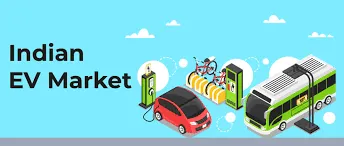
Significant efforts from key stakeholders—component makers, OEMs, governments (both central and state), and charging/swapping infrastructure providers—are accelerating the growth of India’s EV sector. Several growth drivers include:
- Establishment of new manufacturing hubs
- Decreasing costs of EV batteries
- Fiscal incentives for EV manufacturers
- Increasing consumer demand for clean, fuel-efficient vehicles like passenger battery electric vehicles (BEVs)
- Increased public budget allocations for the EV sector
- Investments from established industry players and startups in product and technology development, domestic manufacturing, and supply chains
- Multiple production-linked incentive (PLI) schemes aimed at electric vehicle and fuel cell manufacturing, such as the PLI scheme for Advanced Chemistry Cell (ACC) battery storage
- Enhanced efforts to expand EV charging infrastructure, such as the Ather Grid
- Supportive EV sector-specific initiatives and policies like the “Uttar Pradesh Electric Vehicle Manufacturing and Mobility (EVMM) Policy 2022” and the upcoming “battery swapping policy”
Furthermore, oil companies are exploring alternative energy options, such as installing EV charging stations at fuel stations. For example, IndianOil (Indian Oil Corporation Limited) plans to install EV charging facilities at 10,000 fuel stations to support India’s EV manufacturing system and promote greener energy solutions. Industry alliances like the India Energy Storage Alliance (IESA) play a crucial role in promoting e-mobility technologies.
Conclusion

India’s EV sector is expanding in alignment with the government’s vision to decarbonize high greenhouse gas-emitting sectors like energy and transport. The National Electric Mobility Mission Plan (NEMMP) 2020, developed by the Ministry of Heavy Industries, and the FAME India Scheme (Faster Adoption and Manufacturing of Hybrid & Electric Vehicles) are key initiatives to enhance electric mobility. The potential for 100% foreign direct investment (FDI) aims to foster a globally competitive auto industry in India. Subsidies and tax benefits help bridge the price gap between EVs and traditional internal combustion engine (ICE) vehicles, promoting the growth of the commercial EV market. Providing subsidies and diverse EV financing options will be crucial in accelerating the adoption of electric mobility.
As India’s EV industry achieves new milestones, the country’s leading EV companies are setting the stage for a sustainable and prosperous future in electric mobility.
Leading Electric Vehicle Companies in India
The electric vehicle (EV) industry is rapidly expanding in India, with many companies producing a variety of EVs, including electric buses, bikes, cars, scooters, three-wheelers, and trucks. Traditional diesel or petrol-powered vehicles are increasingly being replaced by environmentally friendly, high-performance EVs equipped with advanced connectivity and safety features. Electric mobility is revolutionizing the future of transportation with sustainable, scalable, and user-centric solutions.
Key Players in India’s EV Market
India’s EV market is dominated by major brands across various segments, including two-wheelers, three-wheelers, passenger vehicles, and commercial EVs. Notable companies include Ampere, Ashok Leyland, Ather Energy, Hero Electric, Hero MotoCorp, Hyundai, Mahindra Electric, MG Motor India, Okinawa Autotech, Ola Electric, Tata Motors, and TVS Motor Company.
Leading EV Car Companies in India
Tata Motors
Tata Motors is a leading EV manufacturer in India, achieving significant growth in EV sales in FY22, with a 353% increase compared to FY21. The company has a first-mover advantage, offering the widest range of EVs in the country. The Tata Tigor EV, the company’s first EV for personal buyers, accounted for 95% of total electric car sales in February 2022. Tata’s EVs use Ziptron technology, which ensures long motor life and smooth battery performance. Key models include:
- Tiago.ev: Features a refined front grille, distinctive DRLs, luxurious interiors, and comprehensive safety features.
- Tigor.ev: Equipped with Hyperstyle Wheels, automatic temperature control, and smart features like a digital instrument cluster and reverse camera with dynamic guidelines.
- Nexon EV: India’s best-selling electric car, available in variants like the Jet Edition, Nexon EV PRIME, Nexon EV MAX, and Dark Edition.
Tata Motors is also considering reviving its compact city car Nano in an EV format as part of an ambitious expansion in the electric mobility sector. The Tata Punch EV, built on the GEN 2 (Sigma) platform, offers a range of over 300 km. The upcoming CURVV SUV Coupe EV concept boasts a 400 km range, while the AVINYA EV Concept is Tata’s first model based on the GEN 3 architecture, termed “Born Electric.”
Tata Elxsi
Tata Elxsi provides design and technology services across various industries, including automotive, digital, healthcare, and transportation. Its eMobility HILS framework validates EV systems such as battery management, DC-DC converters, and inverters.
MG Motor India
MG Motor India Private Limited designs, develops, and markets cars under the MG (Morris Garages) marque, a renowned British automotive brand. The MG ZS EV, India’s first pure electric Internet SUV, features a 50.3kWh battery pack and a range of 461 km. The company plans to challenge Tata’s Tiago EV with the introduction of the MG Air EV.
Mahindra Electric Mobility
Mahindra Electric Mobility Limited is the EV division of the Mahindra Group. Since the launch of the Mahindra Reva in 2001, the company has made significant contributions to India’s EV market, focusing on battery manufacturing and EV infrastructure. The lineup includes:
- Mahindra eVerito: India’s first electric sedan with the patented REVive feature to alleviate range anxiety.
- Mahindra e2oPlus: A compact, 100% electric vehicle offering maximum efficiency and convenience.
- Mahindra NEMO: The Next-Generation Mobility platform, providing deep insights into vehicle performance.
Hyundai
Hyundai Motor Company, a key player in the electric mobility revolution, introduced India’s first electric SUV, the KONA Electric, in 2019. The Hyundai IONIQ 5, built on the Electric-Global Modular Platform (E-GMP), offers better handling, faster charging, increased driving range, and more interior space.
Other Prominent EV Car Manufacturers
- BYD (BYD E6)
- BMW (BMW i4)
- Audi (Audi e-tron)
- Porsche (Porsche Taycan)
- Mercedes Benz (Mercedes Benz EQC)
Top EV Stocks in India
For those considering investment in EV stocks, here are some top options in India (listed alphabetically):
- Amara Raja Batteries Ltd. (Batteries)
- Ashok Leyland (Automobiles – Trucks/LCVs)
- Exide Industries Ltd. (Batteries)
- Graphite India Ltd. (Electrodes & Welding Equipment)
- Greaves Cotton Ltd. (Diesel Engines)
- Hero MotoCorp Ltd. (Automobile 2- and 3-wheelers)
- Himadri Speciality Chemical Ltd. (Chemicals)
- Hindalco Industries Ltd. (Metal – Non-ferrous)
- Hindustan Copper Ltd. (Metal – Non-ferrous)
- JBM Auto Ltd. (Auto ancillary)
- Mahindra & Mahindra Ltd. (Automobiles – Passenger cars)
- Maruti Suzuki India Ltd. (Automobiles – Passenger cars)
- Tata Chemicals Ltd. (Chemicals)
- Tata Motors Ltd. (Automobiles – Trucks/LCVs)
- Vedanta Ltd. (Metal – Non-ferrous)
Major Players in the Commercial EV Industry
BluSmart Mobility
BluSmart Mobility Pvt. Ltd. is the largest EV ride-hailing service in India, operating over 2,500 electric cars and providing an all-electric shared mobility platform.
Electric One
Electric One Mobility Private Limited is India’s fastest-growing multi-branded electric mobility chain, offering top models from trusted brands through its extensive network of over 100 stores.
Lohia Auto
Lohia Auto is a leading manufacturer of e-autos and e-rickshaws, known for its benchmark products in the EV category. The company offers a wide range of two-wheelers, E-Rickshaws, E-Auto L3, E-Rick/L3-Auto, and E-Auto L5 vehicles.
Upcoming Electric Cars
The Indian automotive market is preparing for significant launches in 2023, including:
- Citroën C3 EV
- Mahindra XUV400
- Tata Altroz EV
Auto Expo 2023
Car enthusiasts are eagerly anticipating the 16th edition of the Auto Expo, where several electric vehicles are expected to be showcased, such as:
- ByD Seal
- Hyundai Ioniq 6
- Kia EV9
- Maruti YY8
- MG4 EV Hatchback
- MG5 EV Electric Estate
- Tata Punch EV
- Toyota BZ Series/Prius/Electric Hilux
Global Electric Vehicle Market Insights
Blackridge Research & Consulting
Blackridge Research & Consulting’s Global Electric Vehicle Market report provides a comprehensive analysis of the global EV market, segmented by geography and vehicle type. The forecast period indicates that the Asia-Pacific region will dominate the EV market, followed by Europe and North America. The Indian EV market shows a positive outlook, with ambitious government targets for EV sales by 2030:
- 70% for commercial vehicles
- 30% for private cars
- 40% for buses
- 80% for two- and three-wheelers
The Future of India’s EV Market
Significant efforts from key stakeholders—component makers, OEMs, governments (both central and state), and charging/swapping infrastructure providers—are accelerating the growth of India’s EV sector. Several growth drivers include:
- Establishment of new manufacturing hubs
- Decreasing costs of EV batteries
- Fiscal incentives for EV manufacturers
- Increasing consumer demand for clean, fuel-efficient vehicles like passenger battery electric vehicles (BEVs)
- Increased public budget allocations for the EV sector
- Investments from established industry players and startups in product and technology development, domestic manufacturing, and supply chains
- Multiple production-linked incentive (PLI) schemes aimed at electric vehicle and fuel cell manufacturing, such as the PLI scheme for Advanced Chemistry Cell (ACC) battery storage
- Enhanced efforts to expand EV charging infrastructure, such as the Ather Grid
- Supportive EV sector-specific initiatives and policies like the “Uttar Pradesh Electric Vehicle Manufacturing and Mobility (EVMM) Policy 2022” and the upcoming “battery swapping policy”
Furthermore, oil companies are exploring alternative energy options, such as installing EV charging stations at fuel stations. For example, IndianOil (Indian Oil Corporation Limited) plans to install EV charging facilities at 10,000 fuel stations to support India’s EV manufacturing system and promote greener energy solutions. Industry alliances like the India Energy Storage Alliance (IESA) play a crucial role in promoting e-mobility technologies.
Conclusion
India’s EV sector is expanding in alignment with the government’s vision to decarbonize high greenhouse gas-emitting sectors like energy and transport. The National Electric Mobility Mission Plan (NEMMP) 2020, developed by the Ministry of Heavy Industries, and the FAME India Scheme (Faster Adoption and Manufacturing of Hybrid & Electric Vehicles) are key initiatives to enhance electric mobility. The potential for 100% foreign direct investment (FDI) aims to foster a globally competitive auto industry in India. Subsidies and tax benefits help bridge the price gap between EVs and traditional internal combustion engine (ICE) vehicles, promoting the growth of the commercial EV market. Providing subsidies and diverse EV financing options will be crucial in accelerating the adoption of electric mobility.
As India’s EV industry achieves new milestones, the country’s leading EV companies are setting the stage for a sustainable and prosperous future in electric mobility.

Yaropolk Dabrowski is a distinguished energy investing editor and a prominent expert in financial topics, renowned for his keen insights and analytical approach to the complex intersections of energy markets and investment strategies. With over a decade of experience in the financial sector, Yaropolk has established himself as a thought leader, guiding investors through the intricacies of sustainable energy investments and the impact of global market trends. His expertise spans across diverse areas, including renewable energy, oil and gas, and emerging technologies, enabling him to provide nuanced perspectives that resonate within the financial community.
Recognized for his contributions to top-tier publications, including Forbes, Yaropolk’s writing blends rigorous research with accessible language, making him a sought-after commentator on financial developments. His collaborative efforts with leading investment firms and industry experts further cement his reputation as a trusted resource for investors looking to navigate the dynamic landscape of energy investment. Beyond his editorial work, Yaropolk is dedicated to educating the next generation of investors, advocating for responsible and sustainable investing practices that prioritize long-term growth and environmental stewardship.

